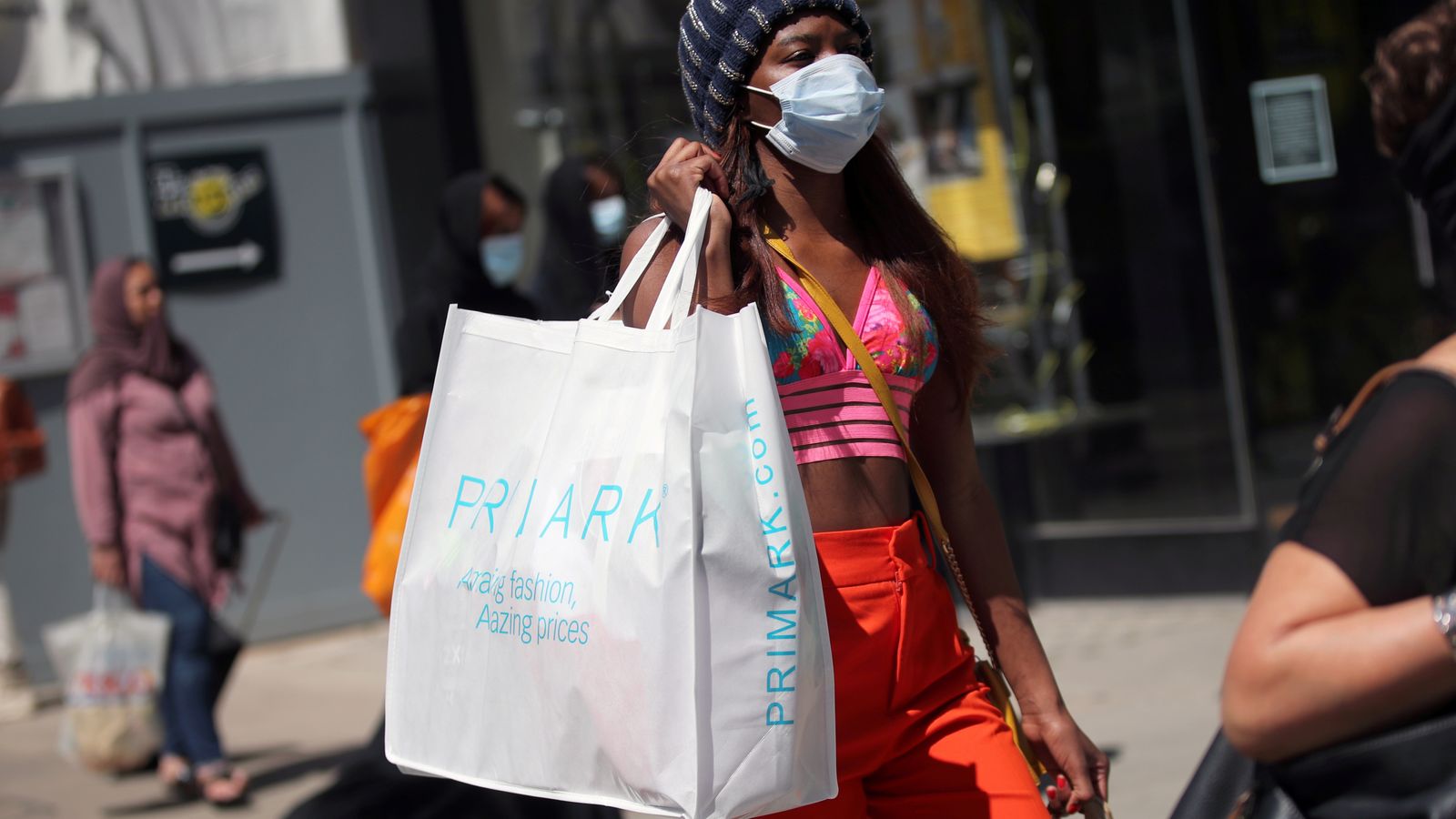Primark is experiencing “limited availability” on some of its product lines due to supply chain disruption, the retailer’s owner has said.
Associated British Foods (ABF) said Primark had been hit by temporary closures and congestion at ports and a shortage of shipping containers.
That was delaying the handover of stock from suppliers and delivery to stores, the group said.
It said it was “closely managing” the issue and “prioritising the product most in demand”.
“Although, at this point, the disruption is causing limited availability on a small number of lines, our warehouse inventories give us stock cover on the majority of lines for the important Christmas trading period,” ABF said.
The group – which also owns grocery brands such as Ryvita and Twinings – also highlighted the impact of higher energy, logistics and commodity costs, which it said may result in price increases in its food business.
Primark is the latest retailer to experience supply chain challenges, following the likes of Next and Sainsbury’s-owned Argos.
Shoppers bringing forward Christmas purchases due to supply chain worries – poll
COP26: Government gives £210m backing for mini nuclear reactors to hit net zero ‘more quickly’
Grenfell: Government to pause leaseholders paying to make cladding safe, Michael Gove confirms
The update came as a survey by Barclaycard showed some consumers were bringing forward purchases due to worries about the disruption.
ABF was reporting annual financial results for the year to 18 September that were heavily affected by the pandemic.
At Primark, lockdown resulted in a hit to sales estimated at £2bn while even when stores were open they were well behind pre-pandemic levels, especially in key city centre locations.
A bounce in sales following the initial reopening was followed by a slump over the summer blamed on the so-called “pingdemic” of self-isolation alerts.
The company said sales of its autumn/winter ranges had started well, helped by continued trend for “comfort living” and the launch of the its range of “snuddies”, described on the brand’s website as a “snuggly oversized hoodie”.
Primark’s annual sales were down by 5% on a year earlier to £5.6bn while its underlying profits dipped by 11% to £321m.
But it sees a bounce back over coming months making up for lost sales and is planning to expand its number of stores from 398 to 530 over five years.
The retailer, which has resisted going online, is also preparing to launch a new website next year which will allow customers to browse products before coming into stores.
Looking ahead, the group said Primark was “not immune to the challenges of supply chain, raw material cost and labour rate inflation” but expected these to be mainly offset by currency effects, greater efficiency and lower costs.
ABF chief executive George Weston said: “Although the possibility of further trading restrictions cannot be ruled out, we expect Primark to deliver a much-improved margin and profit next year.
“We are now intent on expanding our new store pipeline and investing in technology and digital capabilities to continue improving the performance of the business.”
Shares climbed 6% in early trading.
For the wider ABF, a conglomerate which also includes a major sugar business as well as grocery lines such asTwinings tea, Ryvita crackers, Allinson bread and Dorset Cereals, annual revenues were flat at £13.9bn and pre-tax profits climbed 6% to £725m.
The group said: “We are seeing significant cost increases in energy, logistics and commodities in addition to the impact of widely reported port congestion and road freight limitations.
“Our businesses are working to offset the impact of these through cost savings. Where necessary, our food businesses will also implement price increases.”






















